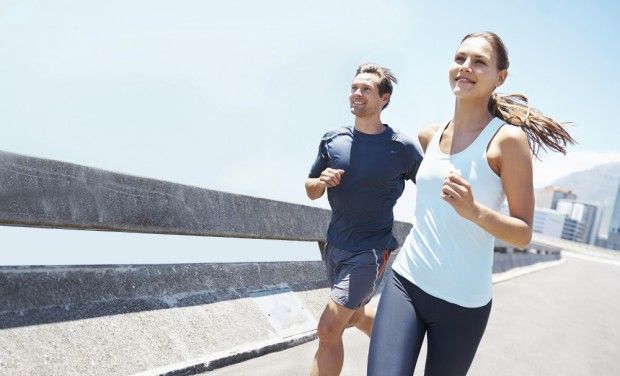Ashwagandha Enhances Cardiorespiratory Endurance in New Study
Twelve-week supplementation with KSM-66 ashwagandha was found to significantly improve oxygen consumption during a run test, researchers report.
Photo © iStockphoto.com/shapecharge

KSM-66 ashwagandha (Withania somnifera) has amassed a growing body of science supporting its place in the sports supplement aisle. Recent studies have backed the muscle-building and stress-relieving benefits of KSM-66 ashwagandha, and new research now suggests the Ayurvedic ingredient may also enhance cardiorespiratory endurance in healthy athletes.
Ixoreal Biomed (Los Angeles), supplier of KSM-66, recently shared results of a randomized, double-blind, placebo-controlled study conducted in India. For 12 weeks, 49 healthy athletic subjects aged 20–45 were given either 300 mg KSM-66 ashwagandha or a sucrose placebo to consume twice per day. To measure the subjects’ cardiorespiratory endurance, researchers measured their oxygen consumption at peak physical exertion (VO2 max) during a 20-meter shuttle-run test, which was conducted at baseline, 8 weeks into the study, and 12 weeks into the study.
Researchers found that the ashwagandha group experienced a significantly greater increase in mean VO2 max compared to the placebo group at both week 8 and week 12, with a more than 13% increase in VO2 max levels observed in the ashwagandha group over the course of the entire study (compared to 5% in the placebo group). Based on the findings, researchers concluded that ashwagandha enhanced cardiorespiratory endurance.
“There are other published studies documenting the effectiveness of ashwagandha in improving stamina,” said Kartikeya Baldwa, director of Ixoreal Biomed. “However, this is the first study using a standardized, branded ashwagandha root extract demonstrating significant positive effects on cardiorespiratory endurance.”
Quality of Life Improvements
Additionally, study participants were also asked to complete quality of life questionnaires created by the World Health Organization (WHO), which assessed physical health, psychological health, social relationships, and environmental factors. On top of the observed improvements to VO2 max scores during the shuttle-run test, the ashwagandha group also showed significant improvements to the self-reported scores for physical health, psychological health, and social relationships at the end of the study compared to the placebo group.
“What is noteworthy is that this study looks not only at physical function, but also at psychological and psychosocial well-being,” said Baldwa. “Ashwagandha is known to promote mind-body balance, something of increasing interest to formulators in sports and active health. It is nice to see a study providing additional evidence on this valuable twin function of ashwagandha.”
Read more:
KSM-66 Ashwagandha Improves Muscle Strength, Size, and Recovery, Study Suggests
KSM-66 Ashwagandha May Improve Sexual Function, Satisfaction in Women
L-Carnitine for Active Millennials is “Untapped Business Opportunity,” Survey Suggests
Michael Crane
Associate Editor
Nutritional Outlook Magazine
michael.crane@ubm.com
References:
Choudhary B et al., “Efficacy of ashwagandha (Withania somnifera [L.] Dunal) in improving cardiorespiratory endurance in healthy athletic adults,” AYU, vol. 36, no. 1 (January-March 2015): 63–68

.png&w=3840&q=75)

.png&w=3840&q=75)



.png&w=3840&q=75)



.png&w=3840&q=75)









